Unit 9: The Pacific
1/10
There's no tags or description
Looks like no tags are added yet.
Name | Mastery | Learn | Test | Matching | Spaced | Call with Kai |
|---|
No analytics yet
Send a link to your students to track their progress
11 Terms
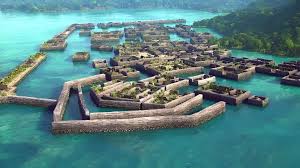
Nan Madol
700-1600
Pohnpei, Micronesia
Saudeleur Dynasty
Basalt boulders and prismatic columns
Now abandoned political/ceremonial center
Spread over 200 acres
Built of megaliths
THEMES: megaliths, abandoned
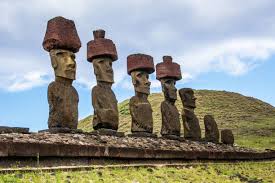
Moai on Platform
1100-1600 CE
Easter Island
Volcanic tuff figures on basalt base
14 ft. high sculptures
Apu: platforms
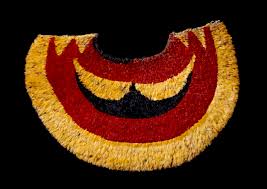
Ahu’ula (feather cape)
Late 18th century CE
Hawaiian
Feathers and fiber
Used for ceremonies and battles
Hawaiian male nobility
Patterns= lineage
Red: protected by gods
THEME: luxury, status, personal ornamentation
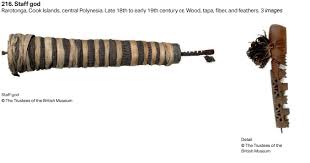
Staff god
Late 18th to early 19th
Rarotonga, Cook Islands, central polynesia
Wood, tapa, fiber, feathers
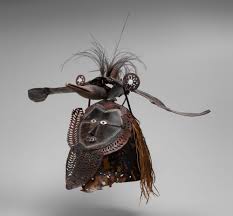
Buk (mask)
Mid to late 19th cent. CE
Torres Strait
Turtle shell, wood, fiber, feathers, and shell
3 zones: face, bird body, feathers
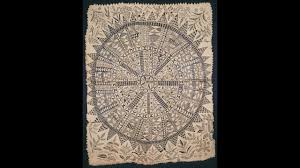
Hiapo (tapa)
1850-1900 CE
Niue
Tapa or bark cloth, free hand painting
Often geometric patterns- red, white, black
THEMES: geometric, functional objects, fabric arts, women’s arts
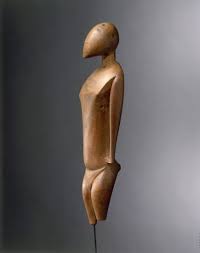
Female Deity
18th to 19th cent. CE
Nukuro, Micronesia
Wood
Local deities, placed in temples, important in religious ceremonies, highly stylized
THEMES: cross culture, religious, decorated
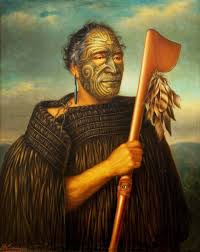
Tamati Waka Nene
1890 CE
Artist: Gottfried Lindauer
Oil on canvas
Ta moko- permanent tattoo
Ancestor portrait
Traditional clothing
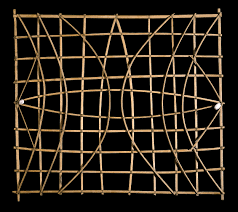
Navigation Chart
19th to early 20th c. CE
Marshall Island, Micronesia
Wood fiber
Charts made of wooden sticks and shells
Marks locations of islands, swells, and wave patterns
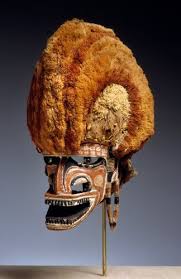
Malagan display and mask
20 c. CE
New Ireland Province, Papua New Guinea
Wood, pigment, fiber, shell
Carved for funerals, 3D
THEMES: funerary art, yearly ritual
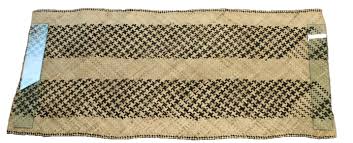
Presentation of Fijian mats and tapa cloths to Queen Elizabeth II
1953 CE
Fiji, Polynesia
multimedia performance
Photographic documentation
Presentation of bark cloth